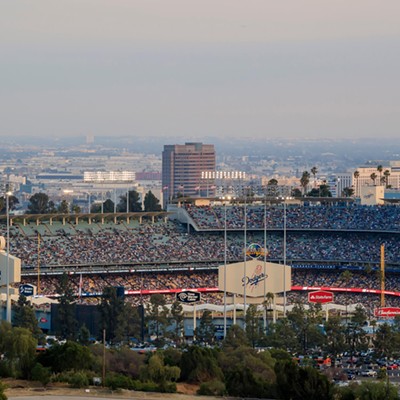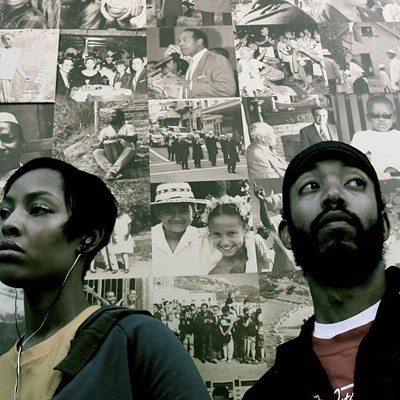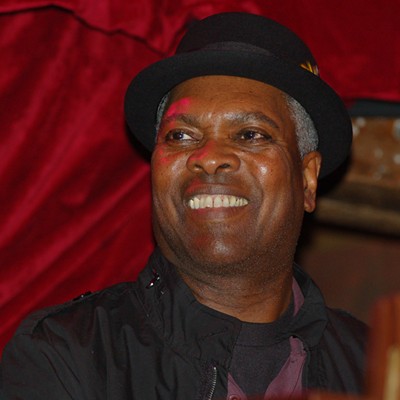With a cast of guest performers that includes Texas Tornado accordionist Flaco Jimenez, Little Willie G. of the seminal East L.A. band Thee Midniters, and the late Lalo Guerrero (singing about Tucson's "Barrio Viejo," in which he was born and raised), Ravine jumps out with "Onda Callajera," a lilting, gut-wrenching ballad recounting the Zoot Suit Riots, when sailors were trucked into L.A. at night to beat up the local pachucos before shipping out.
The riots served as an early excuse to go after the valuable, centrally located Ravine, and ultimately, Dodger Stadium had little opposition. When the penultimate song, a homeboy's folksy geography treatise sung in English by Bla Pahinui, wraps things up with, "If you want to know where a local boy like me is coming from, third base ... Dodger Stadium," you'll hate yourself for ever having referred to the ballpark as "Shuh-vez Ravine," as though it were a place with no history.
Cooder, et al., have produced a living, breathing masterpiece, a history lesson as beautiful in its telling as it is ugly in its reality.










